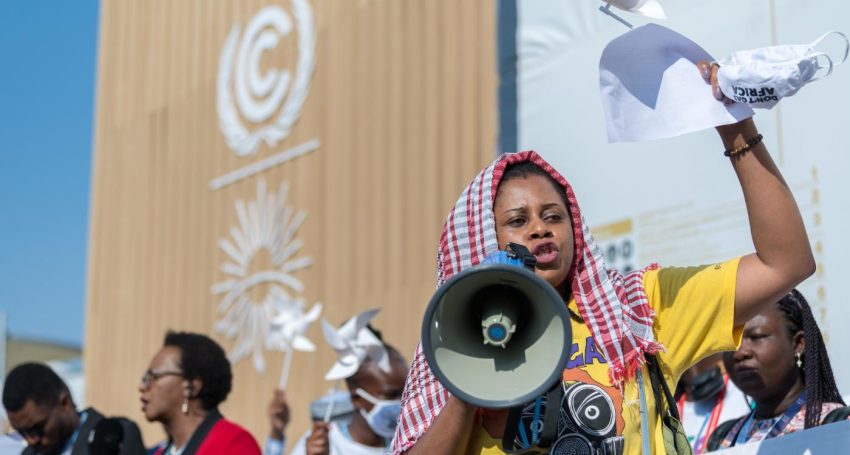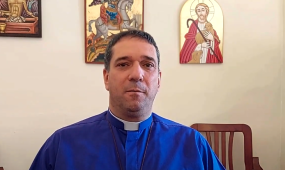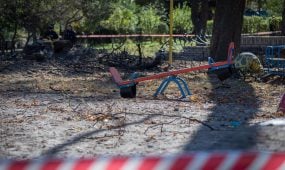Faith-based organizations urged to set example in climate-responsible banking
International
An online event titled “Save Children’s Lives: Climate-Responsible Banking” on 3 July highlighted how investments in new fossil fuel expansion imperil the wellbeing of children, youth, and future generations inspiring action to hold accountable those investing in fossil fuels

An online event titled “Save Children’s Lives: Climate-Responsible Banking” on 3 July highlighted how investments in new fossil fuel expansion imperil the wellbeing of children, youth, and future generations inspiring action to hold accountable those investing in fossil fuels.
Organized by the World Council of Churches (WCC), UN Environment Programme (UNEP), and Joint Learning Initiative on Faith and Local Communities, the event provided an update on the May 2022 appeal “Climate-Responsible Finance – A moral imperative and responsibility to all children and the living world.”
The moral imperative initiative is deeply aligned with the objectives of the upcoming UN Summit of the Future in September 2024, said Dr Iyad Abumoghli, director and founder of the UNEP Faith for Earth Coalition.
“Extreme weather events resulting from unchecked fossil fuel use cause direct threats to the health, safety, and future opportunities of children,” said Abumoghli, adding that the psychological burden of living in a world increasingly compromised by climate change weighs heavily on young minds, affecting their mental health and overall development.
Faith actors play a pivotal role in influencing the move towards responsible banking, acknowledged Abumoghli.
“As trusted leaders in their communities, faith actors possess the moral authority and reach to inspire significant change, and their actions can guide individuals and institutions to consider ethical implications of their financial decisions.”
By committing to divest from fossil fuels and invest in sustainable alternatives, faith-based organizations set a powerful example for others to follow.
Advertisement
“Banking is one of the most powerful levers of climate solutions – yet, the least utilized,” said Frederique Seidel, WCC programme executive for Child Rights, recalling the WCC’s global appeal for climate-responsible financial choices, developed together with UNEP experts and supported by interreligious partners of the WCC back in 2022.
“We are spreading the word because this blindspot brings such a solid hope for children’s futures.”
Introducing the UNEP Emissions Gap report, Dr Anne Olhoff, chief climate advisor of the UNEP Copenhagen Climate Center, pointed out that fossil fuels produce two-thirds of global CO2 emissions, which set a historical record in 2022.
“Climate impacts are already felt – and they hit children, the poor, and the vulnerable the most,” said Olhoff. “Global investment in clean energy is shifting, but not fast enough.”
The shift to more responsibility towards climate taking place too slowly was echoed by Eric Usher, head of the UNEP Finance Initiative.
“Since the Paris Agreement was signed, governments’ action has started and some progress has been made, but it is not ambitious enough. The finance sector is starting to engage these issues, but it is not fast enough.”
Advertisement
Banks are central to this challenge, providing financing for the needs of the society, said Usher. In 2019, UN Principles for responsible banking were adopted – today, a bit more than 50% of the global banking measured by assets are signatories to this framework, challenging banks to play a value-added role in society.
“We see that progress is being made – but banks need to be challenged, and recognized for how this progress goes,” noted Usher. “We should look at their actions – and not necessarily vilify, but both credit where credit is due, and challenge where challenge is needed.”
“It feels that more I learn about the climate emergency, more dire the situation becomes,” said 19-year-old Foday Bangura, co-author of the Children’s Declaration to the New Global Financing Summit, asking the participants of the event questions “to be reflected upon as we go to bed at night.”
“Why should we, young people, not be scared when we understand the global warming and scientific facts shared by UNEP, and when we experience its impacts in our communities?” asked Bangura.
“And why should we not be scared when our banks and financial institutions put us at risk by investing trillions of dollars into new fossil fuel projects – doing exactly the opposite to what is needed for human survival?”
Let us all put our hands together to accelerate the climate solutions and banking responsibly, urged Bangura. “Bank responsibly to protect young people’s right to healthy environment – our future depends on your money.”
The discussion was moderated by Dia Mirza, UNEP goodwill ambassador. During the event, the new WCC resource “Save Children’s Lives: Responsible Banking Survival Guide” was presented, providing support for individuals, organisations and churches to stop investment in fossil fuels.
Resource “Save Children’s Lives: Responsible Banking Survival Guide”
Video recording of the event “Save Children’s Lives: Climate-Responsible Banking”
First published on the World Council of Churches website on 4 July 2024.





